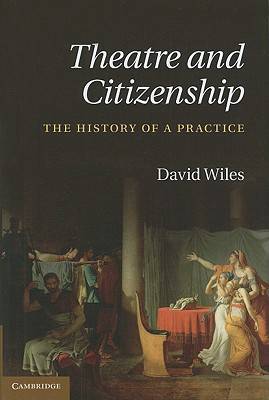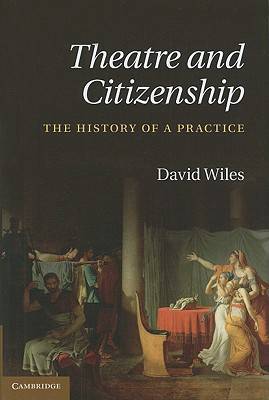
- Afhalen na 1 uur in een winkel met voorraad
- Gratis thuislevering in België vanaf € 30
- Ruim aanbod met 7 miljoen producten
- Afhalen na 1 uur in een winkel met voorraad
- Gratis thuislevering in België vanaf € 30
- Ruim aanbod met 7 miljoen producten
Zoeken
€ 112,45
+ 224 punten
Uitvoering
Omschrijving
Citizenship is a contested term which today inspires both policy-makers and radical activists. David Wiles traces this ideal to its classical roots, examining both theatre and citizenship as performative practices. Wiles examines how people function collectively rather than as individuals, for example through choruses or crowd behaviour in the auditorium. He explores historic tensions between the passivity of the spectator and the active engagement of a citizen, paying special attention to dramatists like Aristophanes, Machiavelli and Rousseau who have translated political theory into a theatre of, and for, active citizens. The book is a fresh investigation of familiar and less familiar landmarks of theatre history, revealing how plays function as social and political events. In this original approach to theatre history, Wiles argues that theatre is a powerful medium to build communities, and that attempts to use it as a vehicle for education are very often misplaced.
Specificaties
Betrokkenen
- Auteur(s):
- Uitgeverij:
Inhoud
- Aantal bladzijden:
- 268
- Taal:
- Engels
Eigenschappen
- Productcode (EAN):
- 9780521193276
- Verschijningsdatum:
- 10/02/2011
- Uitvoering:
- Hardcover
- Formaat:
- Ongenaaid / garenloos gebonden
- Afmetingen:
- 152 mm x 229 mm
- Gewicht:
- 557 g

Alleen bij Standaard Boekhandel
+ 224 punten op je klantenkaart van Standaard Boekhandel
Beoordelingen
We publiceren alleen reviews die voldoen aan de voorwaarden voor reviews. Bekijk onze voorwaarden voor reviews.








